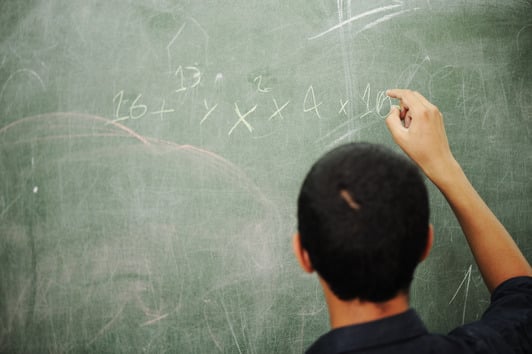 Summer is the quintessential time to kick back and relax. For parents with young kids though, this isn’t always easy to do. One way to work some calm downtime into your summer schedule is to make sure your child reads every day. With all the extra time, this is a great opportunity to help your child learn to love reading.
Summer is the quintessential time to kick back and relax. For parents with young kids though, this isn’t always easy to do. One way to work some calm downtime into your summer schedule is to make sure your child reads every day. With all the extra time, this is a great opportunity to help your child learn to love reading.
Tips for Improving Reading Comprehension
The number one thing you can do is read every single day. This could be a set time you read with your kids and/or time that they read independently, depending on their reading level. You can encourage reading by offering special snacks during reading time, offering incentives for reading a certain number of pages, or modeling reading yourself. Reading can also be a spontaneous activity; don’t think the only time you can read with your kids is during bed time.
You can also work in activities to help with reading comprehension. Following are some ideas.
-
After you’re done reading a story or a chapter, ask your child to summarize what happened.
-
Take turns paraphrasing sentences throughout a story.
-
Ask your child to predict what will happen on the next page.
-
Comment on the pictures and how they relate to the story.
-
Have your child think creatively by asking them “What would happen if…”
-
Choose a passage from the text and have your child draw a picture of what is happening
Reading Comprehension Benchmarks by Grade Level
Kindergarten and 1st Grade
This is when kids form the building blocks for reading, and they should be able to recognize the letters of the alphabet as well as sight words. They will also likely “read” predictable books or books they have seen many times.
As students near the end of first grade, they will start to be able to sound out words on their own and figure out the meaning of simple words from context clues. They will also be able to read simple books with a few sentences on each page.
2nd and 3rd Grade
These students begin to become more independent in their reading as they start to read chapter books. There is also a big transition in third grade where students start to use reading to learn. For example, they might be expected to read a history book to learn information for history class.
4th and 5th Grade
These students read much more complex texts and are expected to be able to analyze the things they read. For example, a student will be able to identify a theme or a moral in a book. Students are also increasingly asked to answer multiple choice and open-ended questions about the things they read.
Help Your Child Succeed
Everybody wants their kids to be successful, and reading is a huge part of success throughout life. If you want to take some of the pressure off of yourself, check out Reading Genie; we offer programs to help your kids learn to love reading while they improve their reading comprehension.





